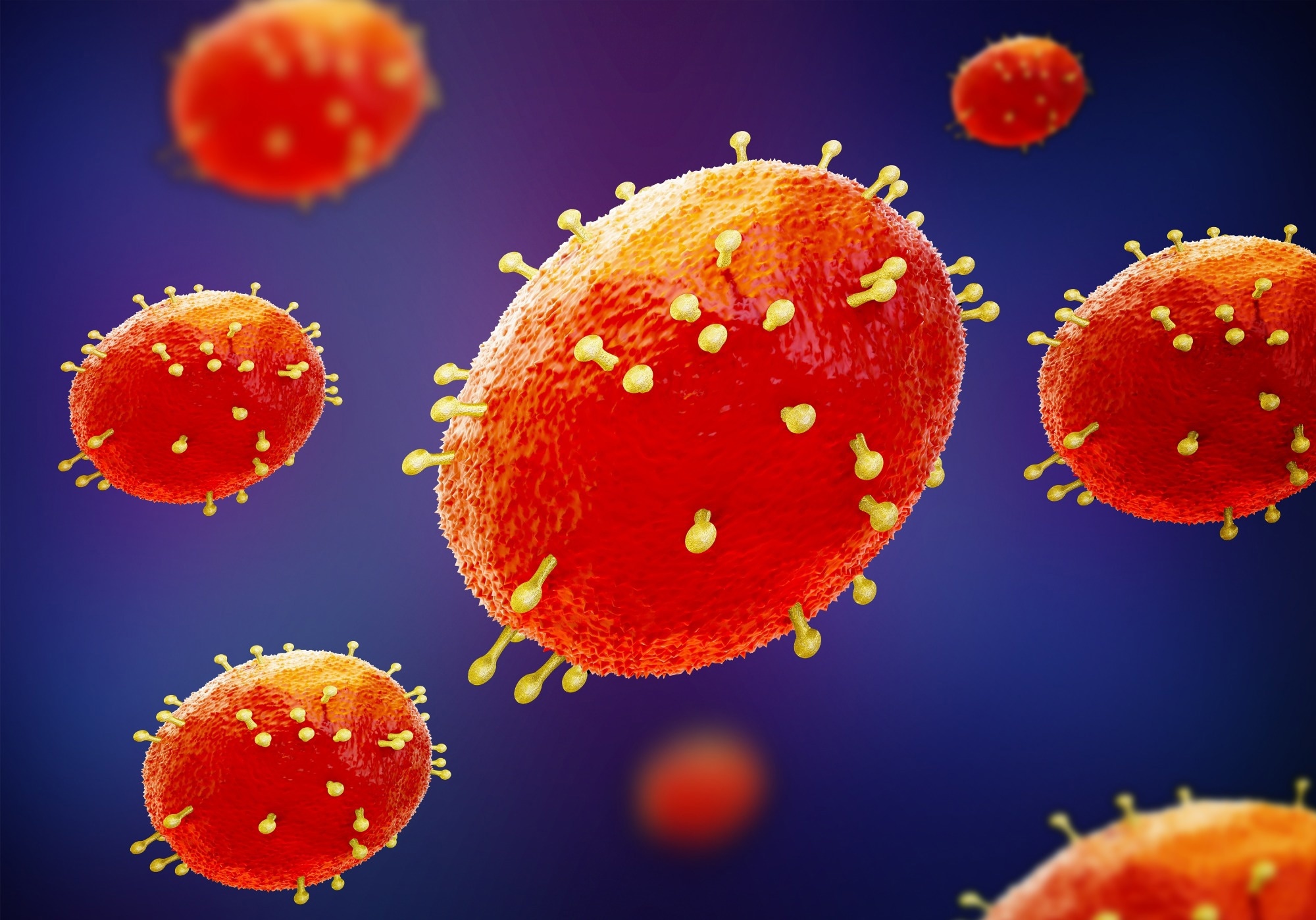The monkeypox virus (MPV) was first discovered in monkeys in 1958 in a Danish laboratory. This double-stranded virus belongs to the family Poxviridae of the genus Orthopoxvirus. The actual reservoir of monkeypox is still not known. In a recent study published in the journal Vaccines, scientists reviewed all relevant literature to find the available vaccines and therapeutics to prevent MPV.
 Study: Preventing the Next Pandemic: Is Live Vaccine Efficacious against Monkeypox, or Is There a Need for Killed Virus and mRNA Vaccines? Image Credit: MIA Studio / Shutterstock
Study: Preventing the Next Pandemic: Is Live Vaccine Efficacious against Monkeypox, or Is There a Need for Killed Virus and mRNA Vaccines? Image Credit: MIA Studio / Shutterstock
Recent Incidence of Monkeypox Virus Infection
In 1970, MPV was first detected in humans residing in the Democratic Republic of the Congo (DRC). MPV has two genetic clades, namely, the West African and the Central African (Congo Basin). This disease is mostly found in African countries, mainly in Central and West Africa, but the first case of MPV in the U.S. was reported in 2003. In 2022, many cases of MPV have been reported in countries like the United Kingdom, the USA, Germany, Portugal, France, and Spain.
MPV causes symptoms similar to those associated with smallpox. However, the severity and mortality associated with MPV infection are much lower compared to the smallpox virus.
Vaccines for MPV Infection
The first line of defense is provided by the immune system, i.e., innate and adaptive immunity. Effective vaccination could provide herd immunity, which would help contain viral transmission. There are different types of vaccines, i.e., live (-attenuated) vaccines, inactivated virus vaccines, and mRNA vaccines (self-amplifying and non-replicating).
As stated above, no specific vaccines are available for MPV. However, smallpox vaccines provide cross-protection to MPV in 85% of cases. Hence, unvaccinated patients are more susceptible to contracting MPV infection. To date, three generations of smallpox vaccines have been developed. First-generation smallpox vaccines have been propagated through calfskin and are collected from calf lymph. However, these vaccines are not recommended for MPV interventions.
The second-generation smallpox vaccine is manufactured through modern practices and is propagated in tissue cell cultures. Compared to the first-generation vaccine, second-generation vaccines are safer and exhibit a reduced risk of contamination. Nevertheless, both vaccines have a tendency to develop adverse effects as they are based on the replication-competent vaccinia virus. Although the manufacturing process of the third-generation vaccine is similar to that of the second generation, it shows increased safety profiles as it contains attenuated vaccinia viruses.
Genetics & Genomics eBook

Compilation of the top interviews, articles, and news in the last year.
Download a copy today
The U.S. Food and Drug Administration (FDA) has approved the second-generation smallpox vaccine (ACAM2000) to be used in sudden outbreaks of the MPV. Additionally, 2019 clinical studies revealed that MVA-BN or JYNNEOSTM have high efficacy and safety and can be used as a preventive measure for MPV infection. Although LC16 has been approved for smallpox, it is ineffective against MPV. All these vaccines effectively prevent MPV infection when used in a pre-exposed condition. However, postexposure vaccination could prevent severe infection in MPV patients. This study indicates that vaccinating post-exposure to the virus is also beneficial. Therefore, the Centers for Disease Control and Prevention (CDC) recommends that individuals exposed to MPV must be vaccinated within four days of their exposure.
Several studies have indicated that the protection generated after smallpox vaccination wanes over time. However, post-vaccination protection persists for up to twenty years. Importantly, vaccinated individuals are protected from severe infection throughout their life. Therefore, the CDC also recommended that unvaccinated individuals exposed to the MPV must be vaccinated with the smallpox vaccine as soon as possible.
Efficacy of Vaccines for MPV
There are three different vaccines for orthopoxviruses, namely, ACAM2000, JYNNEOS, and LC16. As stated above, In 2015, the FDA approved ACAM2000 for smallpox and monkeypox. It was the only available monkeypox vaccine until 2019. This vaccine has been developed using cell culture techniques in the USA and France by Emergent BioSolutions. The MVA-BN vaccine is a third-generation, non-replicating Ankara vaccine manufactured by Bavarian Nordic. The LC16 vaccine is also a third-generation vaccine manufactured by K.M. Biologics; however, as mentioned above, it is not effective against MPV infection.
The vaccines listed above cannot be administered universally. For example, JYNNEOSTM is only considered for adults. Pregnant and breastfeeding women must receive LC16 and JYNNEOSTM for pre- and post-exposure vaccination. ACAM2000 vaccine is not recommended for preventing MPV in children due to scarcity of data.
Need for a Novel MPV Vaccine
As the global incidence of MPV infection is continually increasing, there is an urgent need for an effective preventive strategy against the virus. Furthermore, as the efficacy of the available vaccines is in question, there is a dire need for a safe and effective vaccine, highly specific for the MPV. The authors recommended new mRNA vaccines be developed before monkeypox is declared a pandemic. In the meantime, MVA-BN can be used to limit the spread of the disease until a new vaccine is developed and validated.
- Abdelaal, A. et al. (2022) Preventing the Next Pandemic: Is Live Vaccine Efficacious against Monkeypox, or Is There a Need for Killed Virus and mRNA Vaccines? Vaccines, 10(9), 1419. http://dx.doi.org/10.3390/vaccines10091419, https://www.mdpi.com/2076-393X/10/9/1419
Posted in: Medical Research News | Disease/Infection News | Pharmaceutical News
Tags: Breastfeeding, Cell, Cell Culture, Children, Contamination, Efficacy, Food, Genetic, Immune System, immunity, Laboratory, Manufacturing, Monkeypox, Mortality, Pandemic, Smallpox, Therapeutics, Vaccine, Vaccinia Virus, Virus

Written by
Dr. Priyom Bose
Priyom holds a Ph.D. in Plant Biology and Biotechnology from the University of Madras, India. She is an active researcher and an experienced science writer. Priyom has also co-authored several original research articles that have been published in reputed peer-reviewed journals. She is also an avid reader and an amateur photographer.
Source: Read Full Article





